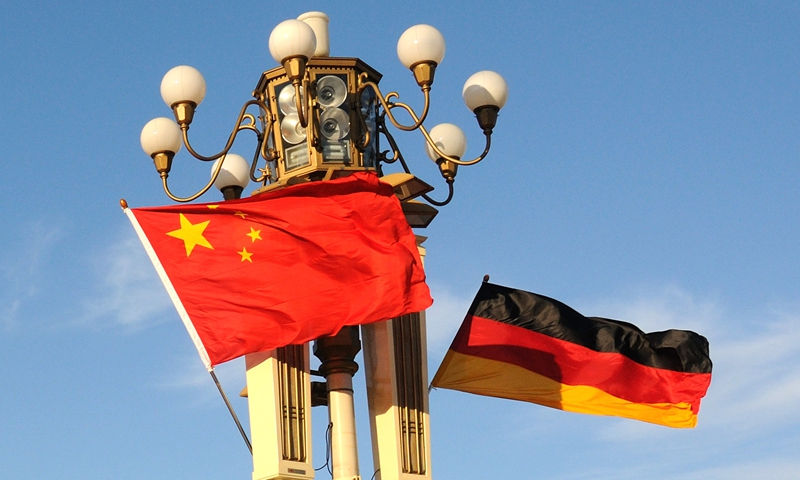
China Germany: Xinhua
Chinese experts said on Sunday that the reported official China visit by German Foreign Minister Annalena Baerbock in mid-April would highlight the importance of China-Germany relations, and that Germany is willing and able to play a central driving role in further promoting the development of bilateral relations between China and Europe, whether from the perspective of its own interests or from the needs of the overall development of Europe.
According to German newspaper Handelsblatt on Thursday, Baerbock would leave for Beijing a few days after Easter, which is celebrated on April 9 this year. After her China visit, the minister will head to Japan to attend a meeting of G7 foreign ministers, the report said.
One of the highlights of Baerbock's visit is likely to be the German government's yet-to-be-published China strategy, which is being drafted by the German foreign ministry. Under the new strategy, Germany will adjust its relations with China.
Recently, there has been a lot of debate in Germany about its China policy. As there are some different voices inside the German government, the first purpose of Baerbock's visit should be to maintain contacts with China, Cui Hongjian, director of the Department of European Studies at the China Institute of International Studies, told the Global Times on Sunday.
Considering the agenda of the next round of intergovernmental consultations, how to set the tone of China-Germany relations is very important. Therefore, the second purpose should be to communicate with China on the issues of greatest concern to each other and prepare for the final strategy paper on China, Cui noted.
As the largest economy in Europe and the country with the closest economic and trade cooperation with China within the EU, Germany should be commensurate with this role, and its pragmatic side should be more fully embodied, experts stressed.
In this regard, Germany should consider its words and deeds in a more comprehensive and prudent manner because only in this way can it reflect the responsibilities that a major country should shoulder, Cui said.
As French President Emmanuel Macron as well as other European leaders are reportedly scheduled to visit China soon, the German foreign ministry believes that it is necessary to join in and learn more about the situation in China, which is of great value for them to further formulate their policies toward China, Gao Jian, director of the Center for European Think Tank Studies at Shanghai International Studies University, told the Global Times on Sunday.
In August 2022, during a visit to the US, Baerbock announced that a new German strategy for relations with China would be presented in 2023. However, it was later reported that the German Chancellery rejected some of the overly strong language in the foreign ministry's China strategy and demanded that it be revised.
Such an open denial is a relatively rare phenomenon, experts said. Although the Chancellery and the foreign ministry have had different policies on China for a long time, they used to maintain unity on the surface. Such a clear statement on China-related policy underscores the importance of China-Germany relations, experts said.
Although the German foreign minister's visit may not bring a breakthrough, the main development tone of China-EU relations in 2023 is still positive, Gao noted. The fundamental reason is that since the Russia-Ukraine conflict, Europeans are gradually rethinking the so-called Western alliance and the nature of the transatlantic bilateral relationship, he said.




